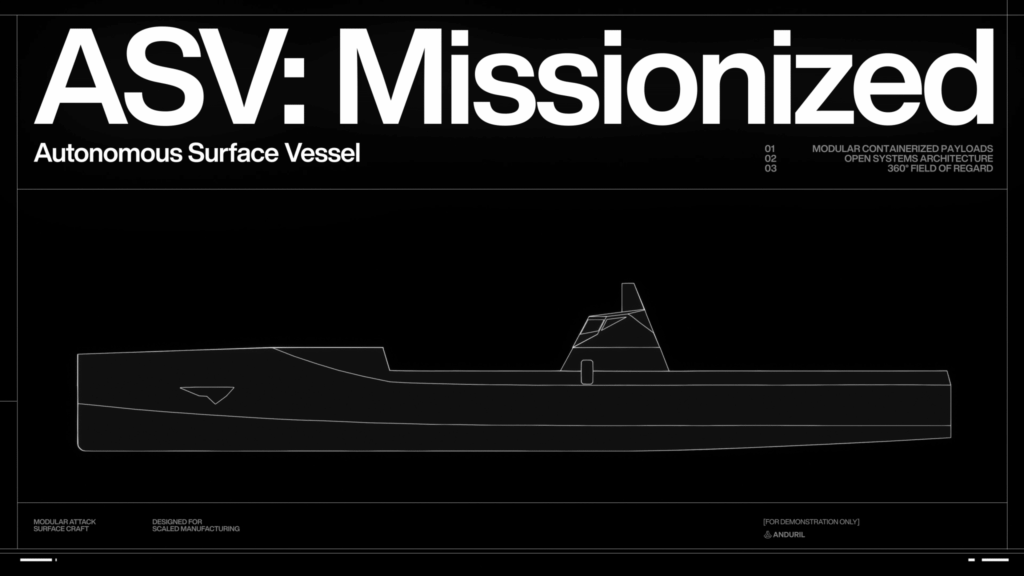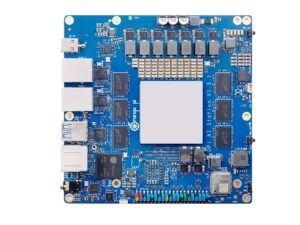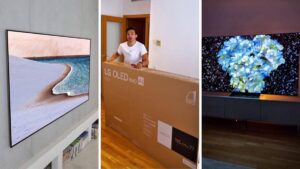
In a groundbreaking partnership, Anduril Industries and HD Hyundai Heavy Industries have announced their collaboration to design and produce a new class of dual-use Autonomous Surface Vessels (ASVs). This initiative combines HD Hyundai’s storied legacy in shipbuilding with Anduril’s cutting-edge software-defined autonomy and mission systems integration expertise.
The collaboration aims to develop a modular family of surface vessels intended for both commercial and defense applications, including a variant tailored to meet the U.S. Navy’s requirements under its Modular Attack Surface Craft (MASC) program. This strategic move underscores the growing importance of autonomous technology in maritime operations.
Strategic Importance of Surface Dominance
The announcement comes at a time when control of the surface domain is increasingly critical for maritime power. With China outbuilding the American fleet at a rate of three to one, and employing its coast guard and maritime militia to challenge navigation freedoms in the Pacific, the stakes are high. Similarly, Russia continues to test Western access in strategic regions such as the Black Sea and Arctic.
Defending commercial shipping from drone threats using traditional military assets is economically unsustainable. To maintain maritime security, the United States must enhance its capacity to build, deploy, and modernize ships swiftly. The Navy’s MASC program is a pivotal step in this direction, aiming to deliver a distributed, autonomous, hybrid fleet capable of operating in contested waters.
The ASV: A New Era of Naval Flexibility
Anduril and HD Hyundai’s ASV is designed for modularity, rapid production, and mission adaptability. Its open-architecture design allows for interchangeable payloads, enabling the vessel to perform a variety of missions, from intelligence and surveillance to electronic warfare, through quick reconfiguration. The vessel’s central superstructure provides a 360-degree field of view, enhancing situational awareness and payload efficiency.
The ship’s autonomy software integrates propulsion, navigation, and payload control into a cohesive networked system, allowing commanders to dynamically adapt missions with enhanced situational awareness. This software-defined integration approach facilitates interchangeability across hardware and software stacks, mitigating supply chain constraints and avoiding vendor lock-in. Constructed in steel, the vessel is designed for durability and ease of maintenance, leveraging the existing domestic supply base.
Building the Future: From Korea to the U.S.
While shipbuilding technology evolves, the foundational principles of success remain. The partnership leverages HD Hyundai’s extensive industrial capacity in Korea to fabricate the first dual-use ASV prototype, validating designs and integrating propulsion and power systems. This prototype serves as a precursor to full-scale U.S. production.
Future vessels, including the MASC variant, will be entirely built in the United States. Anduril has invested significantly to revitalize a previously retired shipyard in Seattle, Washington, at the historic former Foss Shipyard. This facility will act as Anduril’s initial U.S. hub for the assembly, integration, and testing of ASVs for the MASC program.
The Pacific Northwest, with its rich shipbuilding heritage and robust infrastructure, offers the ideal conditions to reinvigorate American shipbuilding and expand the maritime workforce. The region’s historical significance as the home of Kaiser Shipyards and the original Freedom’s Forge underscores its potential to support this ambitious endeavor.
Modernizing Maritime Manufacturing
Anduril and HD Hyundai are also collaborating with Hadrian to modernize manufacturing across the supply chain and core ship components. Hadrian’s precision automation and rapid fabrication capabilities are integral to producing structural and mechanical components, reducing lead times and enabling high-volume production. This partnership is poised to strengthen U.S. maritime resilience through flexible, automated manufacturing processes.
This development follows a broader trend of integrating advanced technologies into naval operations, reflecting a strategic shift towards more agile and autonomous maritime capabilities. As the first ASV prototype nears completion, the collaboration between Anduril and HD Hyundai marks a significant milestone in the evolution of naval warfare and commercial shipping.
Looking ahead, the successful deployment of these vessels could redefine naval strategy, offering a blueprint for future innovations in maritime technology and defense.






